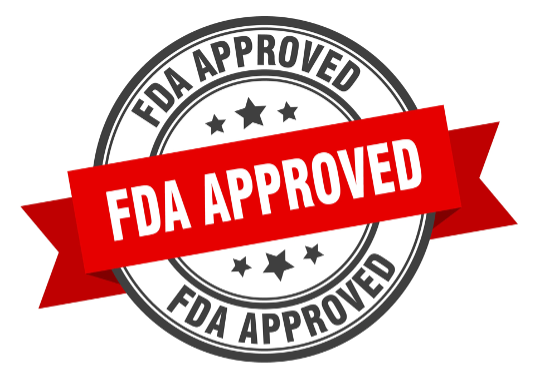FDA Approves Abecma for Patients with Relapsed or Refractory Multiple Myeloma Following Two Prior Lines of Therapy
April 9, 2024
Source: drugdu
 244
244
Davy James
Abecma was found to triple progression-free survival compared to standard regimens with a 51% decline in the risk of disease progression or death in patients with relapsed or refractory multiple myeloma who were previously administered two or more lines of therapy.
 The FDA has approved Bristol Myers Squibb’s and 2seventy bio’s Abecma (idecabtagene vicleucel) to treat adults with relapsed or refractory multiple myeloma who were previously administered two or more lines of therapy that included an immunomodulatory agent (IMiD), a proteasome inhibitor (PI), and an anti-CD38 monoclonal antibody.1 The regulatory action expands the indication for Abecma to earlier lines of treatment in patients whose disease relapsed or became refractory following administration of the three primary treatment classes following two prior lines of therapy.
The FDA has approved Bristol Myers Squibb’s and 2seventy bio’s Abecma (idecabtagene vicleucel) to treat adults with relapsed or refractory multiple myeloma who were previously administered two or more lines of therapy that included an immunomodulatory agent (IMiD), a proteasome inhibitor (PI), and an anti-CD38 monoclonal antibody.1 The regulatory action expands the indication for Abecma to earlier lines of treatment in patients whose disease relapsed or became refractory following administration of the three primary treatment classes following two prior lines of therapy.
“Abecma has demonstrated a progression-free survival benefit three times that of standard regimens in relapsed or refractory multiple myeloma, and we are now bringing the promise of cell therapy to patients earlier in their treatment journey,” Bryan Campbell, senior vice president, head of Commercial, Cell Therapy, Bristol Myers Squibb, said in a press release. “This approval underpins our commitment to addressing the unmet needs of more patients living with multiple myeloma by improving upon the current treatment paradigm, and we remain steadfast in our pursuit of innovation and advancing cell therapy research to deliver potentially transformative therapies.”1
Abecma is a chimeric antigen receptor (CAR) T-cell therapy that attaches to BCMA on the surface of multiple myeloma cells, which prompts the proliferation of the CAR T cells, leading to cytokine secretion and cytolytic elimination of BCMA-expressing cells. The treatment is administered via a one-time infusion at a new recommended dose range of 300 to 510 x 106 CAR-positive T cells.
Last month, the FDA’s Oncologic Drugs Advisory Committee voted that Abecma showed a favorable benefit/risk profile for patients with triple-class exposed relapsed or refractory multiple myeloma based on positive findings from the pivotal open-label, global, randomized, controlled Phase III KarMMa-3 trial.2
The trial compared Abecma with standard therapeutic regimens in patients with relapsed and refractory multiple myeloma previously administered two to four lines of therapy with IMiD, PI, and an anti-CD38 antibody, who were refractory to their latest treatment regimen. Among the patients enrolled, 94% had disease refractory to previous treatment with daratumumab.
Investigators randomly assigned 254 patients to receive Abecma and 132 to receive standard regimens comprised of combinations that included daratumumab, pomalidomide, and dexamethasone (DPd); daratumumab, bortezomib, and dexamethasone (DVd); ixazomib, lenalidomide, and dexamethasone (IRd); carfilzomib and dexamethasone (Kd); or elotuzumab, pomalidomide and dexamethasone (EPd). Among patients in the Abecma cohort, pretreatment was comprised of leukapheresis and optional bridging therapy at the discretion of the investigator.
For the primary endpoint of progression-free survival (PFS), at an estimated median duration of follow-up of 15.9 months, Abecma had a median PFS of 13.3 months (95% CI: 11.8-16.1) compared with 4.4 months (95% CI: 3.4-5.9) in the standard treatment regimen cohorts (HR:0.49; 95% CI: 0.38-0.64; p<0.0001). This translates to a 51% decrease in the risk of disease progression or death.
Patients administered Abecma achieved a significant improvement in overall response rate, with 71% of patients achieving a response and 39% achieving a complete or stringent complete response. In the standard cohorts, 42% achieved a response, with 5% experiencing a complete response or stringent complete response. The median duration of response in the Abecma cohort was 14.8 months (95% CI: 12.0-18.6) and in patients who achieved a complete response or better, median duration of response was 20 months (95% CI: 15.8-24.3).
“The results of the KarMMa-3 study are remarkable, especially given the historic outcomes with standard regimens for these patients with relapsed or refractory disease,” Al-Ola A. Abdallah, MD, University of Kansas, clinical associate professor, clinical director, Hematologic Malignancies and Cellular Therapeutics and chair of US Myeloma Innovations Research Collaborative, said in a press release. “With this approval, these patients now have an opportunity to be treated at an earlier line of therapy with a potentially transformative therapy that offers significantly improved progression-free survival for this difficult-to-treat disease that has had no established treatment approach.”1
Read more on
- Gusekirumab Injection Accepted by CDE, Multiple Pipelines Advancing Simultaneously March 4, 2026
- Yifan Pharmaceutical’s teriparatide injection has been accepted by the CDE (Center for Drug Evaluation), adding a new domestic player to the osteoporosis treatment field March 4, 2026
- //news.yaozh.com/archive/47318.html PD-1 sales surge March 4, 2026
- A major breakthrough! Roche’s oral BTK inhibitor achieves its third Phase III clinical trial victory, a game-changer in the multi-billion dollar MS (manufactured pharmaceuticals) market. March 4, 2026
- GB19 Injection Approved for Clinical Trials of Cutaneous Lupus Erythematosus March 4, 2026
your submission has already been received.
OK
Subscribe
Please enter a valid Email address!
Submit
The most relevant industry news & insight will be sent to you every two weeks.



